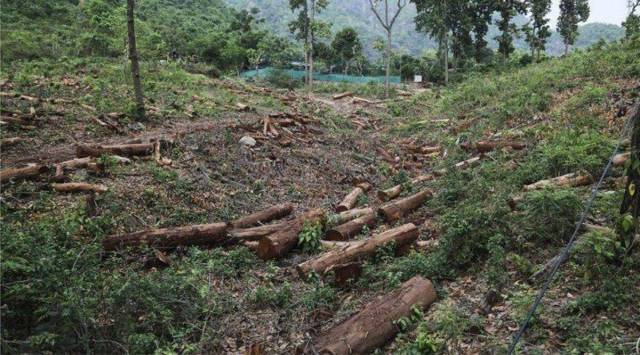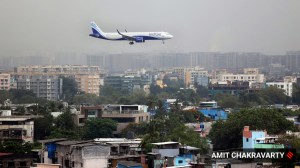Stay updated with the latest - Click here to follow us on Instagram
Bengaluru: Reduction in green spaces, overexploitation of groundwater major environmental concerns of citizens
The study examined the citizens’ perspectives on the environmental issues concerning Bengaluru through a random sample survey carried out in 1,842 households and 440 commercial establishments across the municipal limits between 2020 and 2021.
 The report further said there is only one tree for seven persons in the city. (Representational image)
The report further said there is only one tree for seven persons in the city. (Representational image)The citizens of Bengaluru feel the Land Use-Land Cover (LULC), which includes reduction in green spaces and overexploitation of groundwater are the major environmental concerns bothering them, according to the ‘Bengaluru Environment Report Card’ released by the Centre for Science and Development.
The study examined the citizens’ perspectives on the environmental issues concerning Bengaluru through a random sample survey carried out in 1,842 households and 440 commercial establishments across the municipal limits between 2020 and 2021.
“There is a general positive response from citizens for environment related civic services – water supply, quality, waste management, renewable energy. There is much dissatisfaction on core environment issues of tree cover, parks, lakes, lakes pollution and biodiversity,” the report released on Tuesday evening said.
“Trends in land use change, decrease in green cover and over exploitation of groundwater shows intense competition for land and water resources, affecting our natural capital-native vegetation, soil, lakes and biodiversity,” the report added.
The report further said there is only one tree for seven persons in the city.
“Around 50 lakes have lost their character due to developmental activities in the past. The major factor influencing the land use land cover in Bengaluru is the liberal land conversion policy,” the report added.
While the Bruhat Bengaluru Mahanagara Palike (BBMP) states the number of parks in the city has increased, the study said the local citizens believe these parks are not well maintained.
The study also raises few concerns such as the need to provide better infrastructure across different regions in the city.
“The lack of public sanitation facilities was cited as a major concern by more than 85 per cent of respondents across all zones. Maintenance of the sanitation facilities is an issue as reported by the respondents in RR Nagar and South Zones of the BBMP,” the report said.
The study also found that slum dwellers are concerned about the water quality.
“The water on surface and borewell tests indicate that it is often unsuitable for human consumption. Nitrates and coliforms are found in a wide range of environments. The implementation of Rain Water Harvesting (RWH) is less than 36 per cent of households, hotels, schools and hospitals, while in the residential areas it is hundred percent,” the report said.
High potassium content was found in Dasarahalli, Belhalli and Jakkur areas, which means growth of plants can be affected.
Karnataka State Pollution Control Board member secretary Srinivasulu said: “While we have the data about the pollution level in the city, we should think on how to utilise the data to bring down the level of pollution. Sewage is a major concern. The city generates 1,400 MLD of sewage.”
Vijay Mohan Raj, principal secretary (forest, ecology and environment) said “this report does not make anybody happy”.
“We should rethink the way we see Bengaluru. Has the city exceeded its carrying capacity is the question we need to look at. Behavioral change is needed. Sikkim has banned all small plastic water bottles. We should also do the same,” he added.







